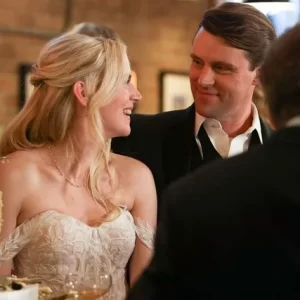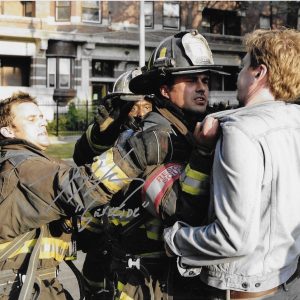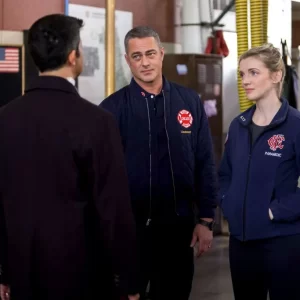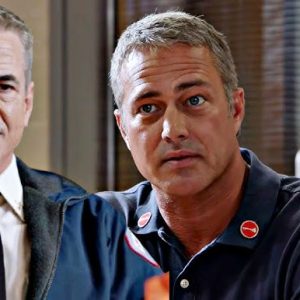Hank Voight, played by Jason Beghe, is the rugged heart and soul of Chicago P.D.. Voight’s morally complex character, known for walking the fine line between right and wrong, has captivated fans for over a decade. With his tough demeanor and willingness to break the rules for justice, Hank Voight’s journey has been full of personal and professional upheavals. Here are eight pivotal episodes that forever changed Hank Voight’s character, making him one of the most compelling figures in the One Chicago universe.
1. Homecoming (Season 5, Episode 22)
The death of Hank’s longtime friend Alvin Olinsky was a devastating moment in Chicago P.D. history. Olinsky, who took the fall for Voight’s actions, is fatally stabbed in prison, leading to Voight confronting his past and the emotional toll it has taken. Voight’s breakdown after realizing that the victory over Denny Woods feels hollow is one of his most vulnerable moments on the show. As Voight tearfully apologizes to Olinsky, the audience witnesses a side of the character that is rarely exposed.
2. What Do You Do? (Season 2, Episode 15)
In one of the most intense hostage situations in Chicago P.D. history, Hank Voight takes charge when Kim Burgess is trapped inside a life-threatening situation. Voight’s quick thinking and gut instincts save the day, as he disregards the negotiation tactics and opts for action. His commanding presence in this episode reinforces why his team trusts him with their lives despite his unorthodox methods.
3. Start Digging (Season 3, Episode 23)
Voight’s personal life is thrust into turmoil in this episode when a murder case leads to suspicion around his son, Justin. His conflict between being a father and a police officer is put to the test, and it’s in this episode that Voight chooses to turn down a promotion to Lieutenant, signaling his reluctance to leave behind his moral compass in favor of career advancement. His loyalty to his family becomes a defining moment in his arc.
4. Closure (Season 9, Episode 1)
In the aftermath of Burgess’s kidnapping, Voight faces the fallout of his actions when he helps cover up the killing of Roy Walton, the man responsible for the attack. His relationship with Detective Hailey Upton is tested as they deal with the consequences together. Voight’s ability to protect his team, even at the cost of his own integrity, shows how far he’s willing to go for his people.
5. More (Season 11, Episode 13)
Voight’s resilience is tested when he becomes the target of a notorious serial killer, Frank Matson. Abducted and drugged, Voight fights for survival, hoping his team will find him before it’s too late. This episode highlights Voight’s unwavering will to survive, proving that even in his darkest moments, he remains an invaluable leader.
6. Reform (Season 5, Episode 1)
Voight’s transition in this episode is profound as he deals with the arrival of Denny Woods, his former partner, now in a superior position. This episode also delves into the changes within the Intelligence Unit, highlighting how Voight struggles with adjusting to new dynamics within the team, particularly in the wake of Erin Lindsay’s departure. The investigation into a gang war that leads to a child’s death pushes Voight to confront his past while balancing his family and career.
7. Reckoning (Season 6, Episode 22)
This episode sees Voight take drastic measures to stop corrupt mayoral candidate Brian Kelton. When Voight’s trusted source is murdered, the team is forced to push forward. Voight’s deep loyalty to his team and his willingness to bend the law to protect them sets the stage for one of his most significant moral dilemmas. The climax, which sees Kelton dead and Voight implicated, demonstrates how far he’s willing to go for justice.
8. Due Process (Season 8, Episode 12)
Voight’s clashes with Deputy Superintendent Miller in this episode highlight his complicated nature. He goes against protocol to catch a serial rapist and murderer, ultimately putting his career and his team in jeopardy. This episode reinforces Voight’s fierce determination and his belief in his own methods, even when it means challenging authority.





